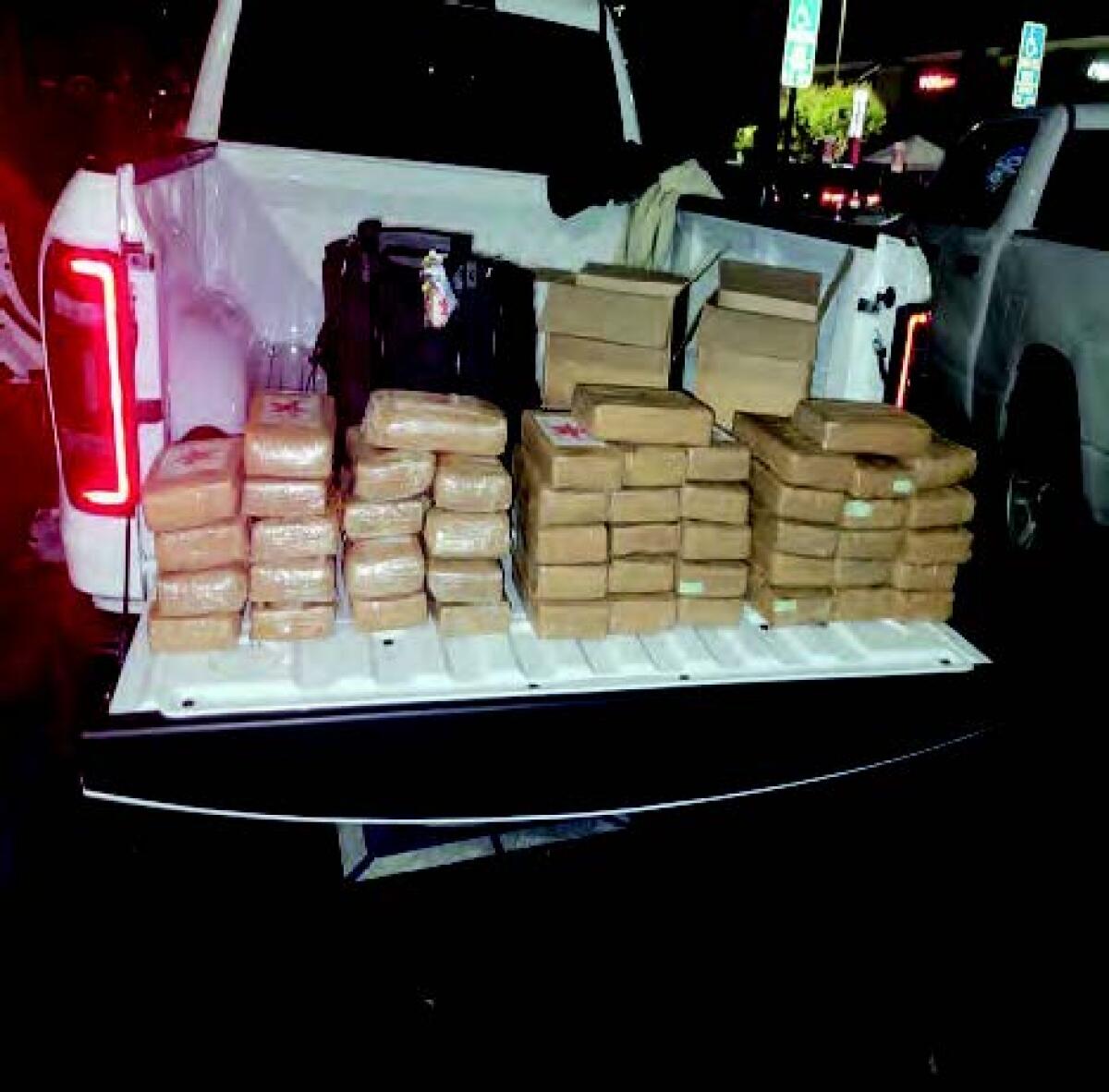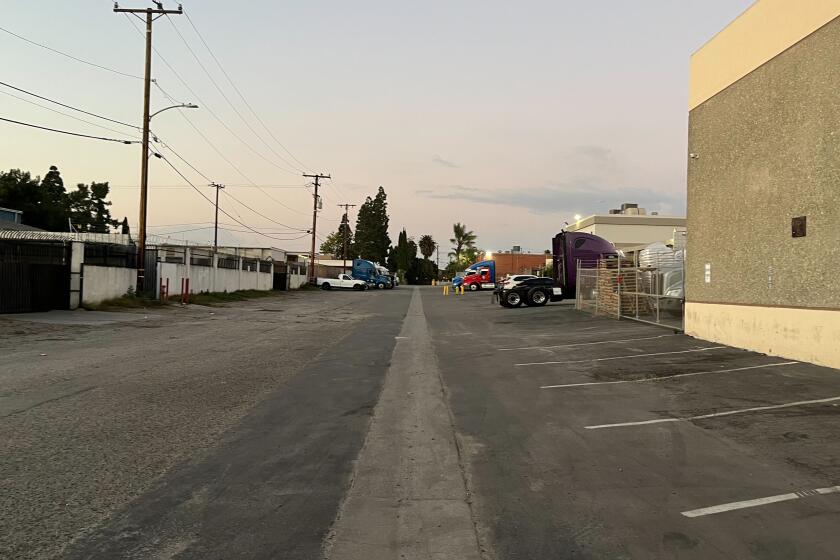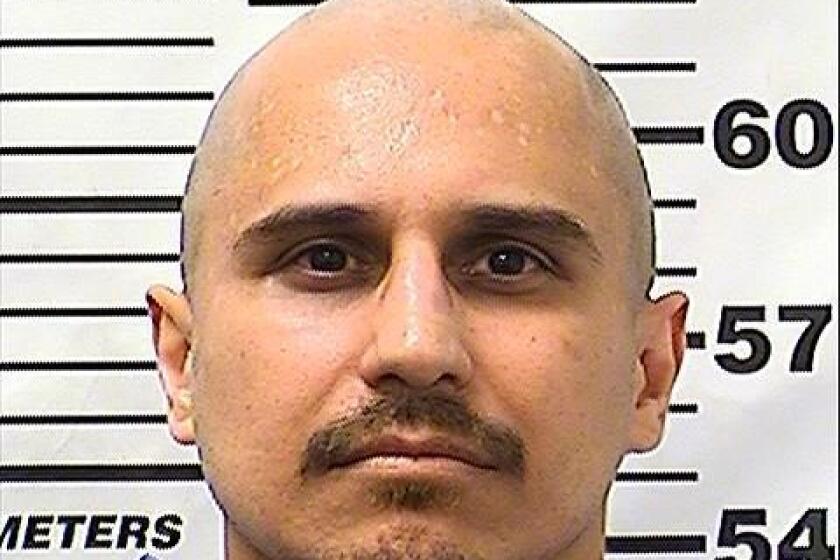Sinaloa drug cartel laundered millions through Chinese network in L.A., prosecutors say

With millions in cash piling up in the United States, the Sinaloa cartel needed to funnel proceeds from the sale of fentanyl, methamphetamine and cocaine back to Mexico.
Federal prosecutors say a ring of Chinese nationals in the San Gabriel Valley offered a solution: marrying the Sinaloans’ glut of bulk cash in Greater Los Angeles with a demand from wealthy residents of China to transfer their money to the United States.
U.S. Atty. E. Martin Estrada announced Tuesday that a grand jury has charged 24 defendants — drug traffickers, couriers, bagmen and brokers — with conspiring to distribute drugs, money laundering and operating an unlicensed money-transmitting business.
Eduardo Escobedo, a convicted drug trafficker who worked directly for the son of Joaquin ‘El Chapo’ Guzman, was gunned down Thursday morning in an industrial stretch of Willowbrook.
The indictment described a straightforward system to transfer wealth out of China. The Chinese government has restricted the flow of assets out of the country, creating an underground market for U.S. dollars that drug traffickers need to transfer back to Mexico without using conventional banking systems.
Chinese nationals are generally restricted from moving more than $50,000 a year out of the country’s financial system. In the money laundering system, prosecutors say, someone seeking to make a large transfer would contact a broker in California. The broker would then arrange for drug profits to be delivered to the Chinese national’s representative in the United States, usually in bulk cash or a series of “structured” deposits small enough to avoid triggering anti-money-laundering controls.
At the broker’s direction, the Chinese national would transfer money to a manufacturer in China that produced either consumer goods, such as electronics and clothing, or chemicals used to make synthetic drugs, Estrada said.
Shipped to Mexico, the consumer goods would be sold and the money turned over to a cartel representative, returning the value of the drug dollars purchased by the Chinese national to the cartel in pesos.
The chemicals, on the other hand, would be used to produce drugs such as fentanyl and methamphetamine in Mexico for sale in the United States, triggering the cycle again, Estrada said.
In a jailhouse interview, reputed Mexican Mafia boss Johnny Martinez says he is an innocent man being railroaded by lying witnesses and vindictive prosecutors.
Prosecutors allege the leaders of the money laundering ring, Edgar Joel Martinez-Reyes and Peiji Tong, traveled to Mexico to strike a partnership with the Sinaloa cartel in 2021. The men were photographed together in a car at the San Ysidro border crossing, returning from what authorities said was the cartel meeting.
Martinez-Reyes’ attorney didn’t immediately respond to a request for comment. No lawyer was listed for Tong in court records.
According to the indictment, hundreds of thousands of dollars in drug money changed hands at a time, packaged in shopping and duffel bags, satchels, backpacks and tin foil-wrapped packages. Agents from the Drug Enforcement Administration watched the handoffs at Parkwest Bicycle Casino in Bell Gardens, an office complex in Downey and a town house in Temple City.
One alleged courier is charged with assaulting a federal officer after he smashed his Lexus ES350 into the officer’s car, trying to flee with $598,000 in vacuum-sealed bills inside his sedan, the indictment says.
Estrada said the ring laundered more than $50 million in drug money over several years. Anne Milgram, administrator of the DEA, said the Sinaloans embraced the San Gabriel Valley-based organization because it charged a commission of 0.5% to 2% of the laundered cash, compared with the 5% to 10% fee collected by traditional money laundering networks.
Milgram said the San Gabriel Valley ring also collected a commission from the wealthy Chinese nationals who purchased dollars from the Sinaloa cartel.
These Chinese nationals wanted to move their money into California to buy real estate, pay tuition and make investments in the U.S. financial system, Estrada said.
Prosecutors had “no direct evidence” the Chinese nationals knew they were buying the profits of fentanyl, methamphetamine and cocaine sales, Estrada said, but anyone who uses an underground banking system dealing in bulk cash “should be suspicious about where that money is coming from.”
More to Read
Sign up for Essential California
The most important California stories and recommendations in your inbox every morning.
You may occasionally receive promotional content from the Los Angeles Times.












